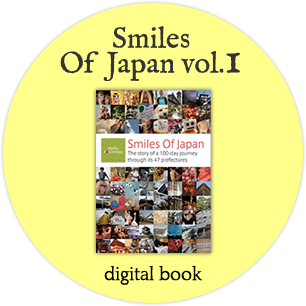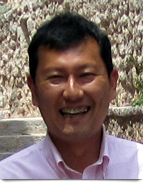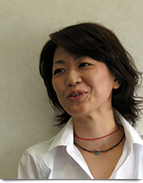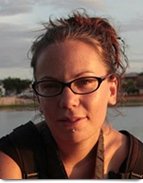2011年12月25日、トラベルボランティアとしてのミッションを完了し、ジェイミとケイティは母国イギリスへ
と帰国しました。
私達の話に耳を傾けて下さった方、フェイスブックでたくさんの「いいね」を押して下さった方、毎日ブログ
を熱心にご覧頂いた方、ただ笑顔で行方を見守り、時に激励の言葉をかけていただいた方。実際にサポータ
ーとして取り上げさせていただいていなくとも、たくさんの方々に関わっていただきました。
プロジェクトに関わっていただいた全ての皆様に対しまして、この場をお借りして深く御礼を申し上げます。
本当に有難うございました。
多くのメディアが、それぞれの視点で捕らえた様々な報道が毎日世界中を飛び交う中、私達のこの取り組み
が、原発事故による風評の払拭に大きな成果をもたらすことができたとは考えておりません。
ただ、震災直後に一体何が起きているのか理解できず、また現実に起きている事象を受け入れることさえもで
きずに茫然自失だったあの時点において、「何かしなければいけない」という思いと共に、もし何もしなけれ
ば、自分達が自分達でなくなってしまうかもしれないといった強い感覚をメンバーひとりひとりが持っていた
ことだけは事実であり、そんな思いがプロジェクトの実行を後押ししてくれました。
それを使命感と言えば聞こえは良いかもしれませんが、未曾有の危機的状況下に遭遇し何か始めるリスクよ
り、何もせずただ時をやり過ごす方が怖かった。というのが今から振り返ると正直なところかもしれません。
外国人の日本への旅行離れが深刻だったあの時、日本の安全性や真実の日本を世界に配信するという大きな命
題を掲げて始めたプロジェクトでしたが、その目的以外にたくさんの副産物を得ることができたと考えていま
す。
初めて二人に出会った9月12日、どこか朴とつであどけなさが見て取れたジェイミとケイティが、100日間の日
本一周の旅を終えて戻ってきた時、実にたくましく精悍で、大きな成長を遂げた様に映ったのを私達チームメ
ンバーは誰一人疑っていません。100日間の旅で得た経験が、例え言葉は通じなくとも、旅先で出会った人との
触れ合いが、彼らを成長させた事に間違いはないと確信しています。
何ら著名人でもない外国人の若者を、行く先々でたくさんの方々にゲストとして温かく迎えていただきまし
た。名所、旧跡にご案内いただき珍しい郷土料理をたくさん食べさせていただきました。各地に伝わる伝統文
化、祭事も披露していただきました。お国自慢もいっぱいしていただきました。
当然ながら終始ジェイミとケイティにスポットがあたりがちなプロジェクトでしたが、真のヒーロー、ヒロイ
ンは、このプロジェクトを支えて下さった皆様一人一人であると今改めて感じています。そうジェイミとケイ
ティは、日本を愛し地元を愛し、人を愛する皆様の"心"そのものだったのではないでしょうか。
ジェイミとケイティが皆様との出会いによって成長できたように、私達チームメンバーもプロジェクトを通じ
て多くを学ばさせていただき、ちょっとは成長ができたかなと思っています。
震災後1年が経過し、今年も桜が咲き誇る季節となりました。しかしながら、時は過ぎようとも生涯決して忘れ
ることができない出来事を私達は経験しました。そして、当分の間「過去の出来事」ではなく、「今現に起き
ている出来事」として事実を背負って生きて行かなくてはなりません。
そんな中、同じ時を同じ日本に生きる人として、「何が出来るだろうか」という気持ちは忘れることなく、観
光に携わる企業人の立場で、また一社会人として継続的に出来る事を模索して行きたいと考えています。
「トラベルボランティアプロジェクト100日+1」は当初の予定通り終了しましたが、同時に新しいアイデアが
どんどん湧き出てきています。今後もせっかくいただいた皆様とのご縁を大切にしつつ、わくわく感を共有し
続けて行けたらどんなに楽しいだろうかと考えています。ジェイミとケイティのブログは100日間で完結しまし
たが、さらに多くの方々に彼らの記録をお届けするべく電子ブックの発行準備をしています。また、フェイス
ブックやツイッターを通じての情報配信と皆様との情報共有も当面の間継続していく予定です。
各ソーシャルメディアを通じて応援していただいた全世界のプロジェクトファンの皆さん、本当に有難うござ
いました。そしてこれからもぜひ輪を広げるサポートをいただけたら実に嬉しい限りです。そして180名以上の
個人サポーターと200を超える団体、法人、行政機関サポーターから多大なるご理解とご支援をいただきました
こと誠に有り難く、ここに改めて感謝の意を表します。
最後に、日本の事を思い、プロジェクトを信じて飛び込んできてくれたジェイミとケイティ本当に有難う。君
達の勇気と行動力に心から敬意を表します。
2012年4月
マゼランリゾーツアンドトラスト株式会社
代表取締役 朽木 浩志


We were in Bolivia when it happened, the vastness of the Pacific Ocean and the impenetrable
Andes between us and the Tohoku region. However, such is the way of the modern world, even
in a $10-a-night hostel half a world away we could sit and watch the terrifying live coverage of
the Great East Japan Earthquake of 2011 as through we were in Japan itself.
The Tokyo offices shaking, the Tohoku fields being engulfed, the Fukushima explosion: these
were the most striking news images we’d seen since those broadcast from New York exactly
nine years and six months previously. Watching them, we felt just as helpless ? like everyone
else around the world, all we could do was watch and listen.
We didn’t like what we heard. Modern media feeds on drama and hysteria to function ?
American news networks would be nothing without it. Manic speculation attracts viewers, who in
turn attract advertises; the first to the exclusive makes the most money. In Bolivia, the only news
networks we had access to were the international editions of CNN and Fox, the squabbling
sisters of the American mainstream. Would things have been more sober on the BBC? We’d
like to think so, but we honestly don’t know.
Instead, there were ludicrous conversations with American anchormen talking to American
experts in an American studio. There was virtually no word from Japan ? just those pictures,
which seared into the world’s collective consciousness. Meanwhile, the on-air conversation was
making its own headlines: “Is there a meltdown at Fukushima?” “I don’t know, but we can’t rule
anything out.” As journalists, we found it sloppy and embarrassing. The Japanese government
was perhaps too slow to release information, but the western media had precisely the opposite
problem.
Some days later, when we next sat in front of a television, pictures from Tohoku started to
emerge. Like most people, we wanted to go to Japan to help; like most people we were bound
by practicalities. As backpackers our budget was planned day-to-day in order that we could
arrive back at home penniless but satisfied. Flights to Japan were simply out of the question.
Instead, we spoke to friends who were living in Japan, read news reports and hoped for the best
for the Japanese people.
Four months later, we had navigated our way north through the Americas and were coming
to the end of our trip. Just two days before we were to fly back to the UK, in a Washington
DC motel room, we got an email. It was a collection of travel stories and opportunities for
journalists ? top of the list was the Travel Volunteer Project. Here, finally, was our chance to
help.
In spite of having no money, this was an opportunity to get to Japan and to volunteer. It’s not
like we had a jobs or a home to give up, either. Not only that, but it would use our specialized
skills: Jamie as a writer, Katy as a photographer. Given how thoroughly useless we’d have been
with a hammer or a saw, it was better for everyone that we use our training and expertise to
help the devastated area.
We submitted an application, said a small prayer to the traveling gods, and promptly forgot
about the whole thing. So when, just three weeks later in Katy’s home in Britain, we found out
we’d been short-listed to come out to Japan for the final selection process, we were genuinely
stunned. With such a carrot on offer ? the chance to see every part of Japan, all expenses
paid ? we thought the quality of applicants would mean we’d never hear anything more about it.
Even flying out to Japan, we didn’t think there’d be a hope of actually getting the job. And when
we did, it took several days for it to sink in. Not that we had time to think about it: the project
was manic from the start, and before we had a chance to even overcome our jetlag we were
on the road blogging about our experiences. Thankfully, we were welcomed to the country by
hundreds of supporters and volunteers, without whom this project would simply not have been
possible. Their generosity and spirit are some of the things we cherish most from our time in
Japan, and the memories that make us most hopeful for the nation’s future.
We’d said in the final interview that we’d approach the projects as professionals, and we like
to think we achieved that. But it was difficult to remain joylessly professional when the country
surprised us with so much, so often.
Jamie Lafferty & Katy Morrison





























































 Jamie Lafferty stumbled out of university unsure of what he wanted to do other than play
golf. A few months later, owing to a series of fortunate events, he found himself working in
newspapers. He spent two years trying not to embarrass himself at the Sunday Herald, and
was eventually asked to go on a press trip. Upon realising that it was possible to travel and
write at the same time, he set about making this arrangement permanent and took a job
in Dubai, writing for Etihad Airways' magazines. At this time he also met and quickly fell in
love with Katy. Five weeks after getting together, they were sharing a flat and saving hard
to escape the desert heat. A year after that they were on the road, backpacking around the
world. Just when they thought it was time to go home, they found themselves in Japan.
Jamie Lafferty stumbled out of university unsure of what he wanted to do other than play
golf. A few months later, owing to a series of fortunate events, he found himself working in
newspapers. He spent two years trying not to embarrass himself at the Sunday Herald, and
was eventually asked to go on a press trip. Upon realising that it was possible to travel and
write at the same time, he set about making this arrangement permanent and took a job
in Dubai, writing for Etihad Airways' magazines. At this time he also met and quickly fell in
love with Katy. Five weeks after getting together, they were sharing a flat and saving hard
to escape the desert heat. A year after that they were on the road, backpacking around the
world. Just when they thought it was time to go home, they found themselves in Japan.
 After graduating from University, Hiroshi Kuchiki first joined
one of the largest travel agency in Japan, specializing in package
holidays and discounted flight tickets. He then joined a wholesale
travel agency specialized in Hawaii. Disappointed by his experiences
with mass-market oriented companies but enthusiastic after discovering
the personalized hospitality concept at three Amanresorts properties in Bali,
he decided to establish an innovative travel company, focusing solely
on tailor-made luxury vacations. Magellan Resorts was born. Magellan resorts
is now a major business partners of Aman resort, Six Senses and many more.
Based on the company’s results and reputation, Hiroshi Kuchiki was
invited to the world’s most exclusive travel show such as ILTM and PURE,
often being the first and only Japanese VIP buyer and built an extended
his network worldwide.In 2006, Hiroshi Kuchiki again pioneered the
Japanese travel industry by launching the first luxury Inbound Department,
specialized in tailor-made journeys & experiences for discerning
international travelers: The Real Japan.
After graduating from University, Hiroshi Kuchiki first joined
one of the largest travel agency in Japan, specializing in package
holidays and discounted flight tickets. He then joined a wholesale
travel agency specialized in Hawaii. Disappointed by his experiences
with mass-market oriented companies but enthusiastic after discovering
the personalized hospitality concept at three Amanresorts properties in Bali,
he decided to establish an innovative travel company, focusing solely
on tailor-made luxury vacations. Magellan Resorts was born. Magellan resorts
is now a major business partners of Aman resort, Six Senses and many more.
Based on the company’s results and reputation, Hiroshi Kuchiki was
invited to the world’s most exclusive travel show such as ILTM and PURE,
often being the first and only Japanese VIP buyer and built an extended
his network worldwide.In 2006, Hiroshi Kuchiki again pioneered the
Japanese travel industry by launching the first luxury Inbound Department,
specialized in tailor-made journeys & experiences for discerning
international travelers: The Real Japan.
 Born and raised in Kanazawa, Eriko Kaminashi loves her hometown
for its great food, climate and nature. She mostly spends her free
time in the middle of mountain for spiritual inspiration and
minus ion for activating brain. Have a afro hair dog and love
silver art at the moment.
After graduating High-school in Japan, Eriko studied tourism in
Denver, Colorado, USA. She first worked at a travel agency in Kanazawa for 3
years and decided to cross the equator to live in Cairns, Australia,
where she spent10 years. Working for a cruising company called
Great Adventures (presently part of Quick Silver connections) as
sales & marketing assistant, she then jumped into a new field
which also provides hospitality: Louis Vuitton Cairns store.
Learned and touched by the strategies of being a top leading
company in designers fashion brands, gave her many idea of
what is luxury, the importance of clientele and searching new
innovative productions. In 2010, Eriko returned to Japan for
good and chose the great opportunity of joining The Real Japan
- Magellan Resorts to continue working in tourism and keep in
touch with the whole world.
Born and raised in Kanazawa, Eriko Kaminashi loves her hometown
for its great food, climate and nature. She mostly spends her free
time in the middle of mountain for spiritual inspiration and
minus ion for activating brain. Have a afro hair dog and love
silver art at the moment.
After graduating High-school in Japan, Eriko studied tourism in
Denver, Colorado, USA. She first worked at a travel agency in Kanazawa for 3
years and decided to cross the equator to live in Cairns, Australia,
where she spent10 years. Working for a cruising company called
Great Adventures (presently part of Quick Silver connections) as
sales & marketing assistant, she then jumped into a new field
which also provides hospitality: Louis Vuitton Cairns store.
Learned and touched by the strategies of being a top leading
company in designers fashion brands, gave her many idea of
what is luxury, the importance of clientele and searching new
innovative productions. In 2010, Eriko returned to Japan for
good and chose the great opportunity of joining The Real Japan
- Magellan Resorts to continue working in tourism and keep in
touch with the whole world.
 Katy Morrison rarely stays in one place for long. The last decade has seen her live and
work in Canada, UK and the UAE. Her passion for travelling has taken her to 54 countries
and six continents. After realising that work was getting in the way of her travel bug, she
convinced Jamie to do a stint as a backpacker. From June 2010 to August 2011 they spent
their time exploring China and South East Asia, Antarctica, the majority of countries in
South and Central America, and finally the USA. Trained as a photographer and graphic
designer, her pictures illustrated the Travel Volunteer Project, and have received praise
from people around the world.
Katy Morrison rarely stays in one place for long. The last decade has seen her live and
work in Canada, UK and the UAE. Her passion for travelling has taken her to 54 countries
and six continents. After realising that work was getting in the way of her travel bug, she
convinced Jamie to do a stint as a backpacker. From June 2010 to August 2011 they spent
their time exploring China and South East Asia, Antarctica, the majority of countries in
South and Central America, and finally the USA. Trained as a photographer and graphic
designer, her pictures illustrated the Travel Volunteer Project, and have received praise
from people around the world.
 Aya Kihara was born in Hyogo and moved to Tokyo before entering elementary
school in Oita and finally studied at the University in Kyoto. Starting her
career at “The Ritz-Carlton, Osaka” as an opening member with a first
experience as restaurant staff followed by Club Concierge, she deeply
learned The Ritz-Carlton hospitality before transferring to
“The Ritz-Carlton, Dubai” as a Guest Relations. In 2004, she
got a great opportunity to join “lebua Hotels & Resorts” in
Thailand, developing her carrier in various positions and experiences
until becoming the Hotel Manager of luxury hotel named “Tower Club at lebua”
& “lebua at State Tower” in Bangkok. After 8 years overseas, Aya recently
returned to her home country and based in Kanazawa, to enjoy new challenge
with The Real Japan - inbound department of Magellan Resorts & Trust:
managing a travel agency creating unique trips for people from all over the
world. Her life goes with “challenge” & “discovery” to look for the ONE!
Aya Kihara was born in Hyogo and moved to Tokyo before entering elementary
school in Oita and finally studied at the University in Kyoto. Starting her
career at “The Ritz-Carlton, Osaka” as an opening member with a first
experience as restaurant staff followed by Club Concierge, she deeply
learned The Ritz-Carlton hospitality before transferring to
“The Ritz-Carlton, Dubai” as a Guest Relations. In 2004, she
got a great opportunity to join “lebua Hotels & Resorts” in
Thailand, developing her carrier in various positions and experiences
until becoming the Hotel Manager of luxury hotel named “Tower Club at lebua”
& “lebua at State Tower” in Bangkok. After 8 years overseas, Aya recently
returned to her home country and based in Kanazawa, to enjoy new challenge
with The Real Japan - inbound department of Magellan Resorts & Trust:
managing a travel agency creating unique trips for people from all over the
world. Her life goes with “challenge” & “discovery” to look for the ONE!
 Born and raised in Paris (France), Eric got the “travel bug” from his parents
at a very early age. After studying International Business in France and
Germany, he decided to travel extensively and spent 6 months in Asia and
8 months in Africa, discovering the countries and the local populations
by many different transportations ways: plane, train, bus, car, slow &
fast boats, on foot and even on tractors & camels. He then moved to
Cambodia, working first as a volunteer to finally end up in the luxury
properties of the Raffles Grand Hotel d’Angkor and Amanresorts’ Amansara.
Eric moved to Japan a year ago and now lives with his Japanese wife and
two children. As the Director of Sales for The Real Japan, he enjoys
finding new destinations in Japan and sharing them with travel agents
from all over the world.
Born and raised in Paris (France), Eric got the “travel bug” from his parents
at a very early age. After studying International Business in France and
Germany, he decided to travel extensively and spent 6 months in Asia and
8 months in Africa, discovering the countries and the local populations
by many different transportations ways: plane, train, bus, car, slow &
fast boats, on foot and even on tractors & camels. He then moved to
Cambodia, working first as a volunteer to finally end up in the luxury
properties of the Raffles Grand Hotel d’Angkor and Amanresorts’ Amansara.
Eric moved to Japan a year ago and now lives with his Japanese wife and
two children. As the Director of Sales for The Real Japan, he enjoys
finding new destinations in Japan and sharing them with travel agents
from all over the world.
